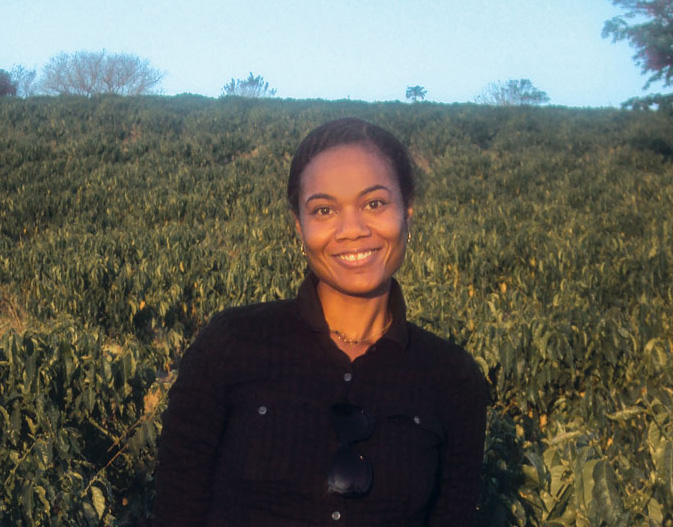[A]t the very end of 2014, the coffee aid organization Coffee Kids announced it would close its doors after more than twenty-five years of work helping young people in coffee-farming communities, especially those in Latin America. The press release said the board was looking for a potential savior, an organization that might take on the mission that Coffee Kids had championed. It was a nice thought, but it sounded more like a prayer than a plan.
Maybe it was both. In April of last year, Coffee Kids announced it would become part of the Hanns R. Neumann Stiftung, a German foundation that works to improve the lives of coffee farmers. Late last year, Chisara Ehiemere joined Coffee Kids as its program director. She says the two organizations are a good match. “Coffee Kids got to keep the name, keep its supporter base, stay aligned with its mission, but at a home where we are really able to piggy back on the Hanns R. Neumann Foundation,” she says.
Ehiemere will oversee three programs that begin this year: one in Colombia, one in Tanzania, and one in the Trifinio region where El Salvador, Guatemala, and Honduras meet. Unlike the previous iteration of Coffee Kids, the organization will not only fund the programs but run them. It’s a new approach under a new organization run by a woman new to aid work.
How did you get into coffee?
I got into coffee by accident. I have a background in supply-chain logistics, a business background, and at one point in my career I decided I wanted to do something that more directly made a difference. The way I wanted to go about doing that was using my business background, so that drew me to fair trade and fair-trade certification. That’s where I really got involved in sustainability and understanding its impact in agriculture communities. Of course, with fair trade, in the US it’s best known for coffee and so that’s where I first got involved with coffee producers and the coffee supply chain. I led up certification. Our team was responsible for ensuring that all of the US-side importers and manufacturers and brands were complying with fair-trade standards. I was there for eight years.
What made you want to move into another job in the coffee industry?
The coffee industry is one that over time begins to feel like family, particularly when you’re lucky enough to have exposure to and relationships to all levels of the supply chain. I had contact with and relationships with many coffee producers as well as exporters, importers, and brands. I felt like it was, and is, an industry where people continue to look for solutions. They ask important and and tough questions. When you have those relationships throughout the supply chain, you have the opportunity to hear so many different points of view that really stimulate you.
Why move into aid work?
It’s different, but it’s working in many of the same communities where coffee producers were working to get fair-trade certification. It’s looking at some of the issues of poverty alleviation and generational change through a different light. I am and always will be a strong supporter of fair trade, but fair trade is not a panacea. There are other issues that communities face: generational change and keeping young people in agriculture and giving rural youths opportunities to stay close to their communities and stay close to home. These are problems that certification addresses indirectly. But this an approach that more directly works in that area.
What do the programs look like after this transition?
We’re starting up programing this year, in some cases starting from scratch, in other cases building on the infrastructure of projects that are already running through the foundation. We’re setting up the programs, which is different from the way Coffee Kids used to operate. That was more of grant-making. That resulted in some really good work, but it was spread over lots of different topics and lots of different areas. What we’re trying this time is to really focus and try out models that we believe will be effective.
So it’s really one program in three locations?
Yes, with some difference depending on the infrastructure in the location. Our three top-level interventions are training, mentoring, and seed capital. It’s a youth entrepreneurship model. We’re helping youth who are interested in staying in agriculture or coffee, definitely staying in their areas to start businesses. We’re exposing them to profitable agriculture and different ways to farm.
Why did the Hanns R. Neumann Stiftung keep Coffee Kids as its own organization?
Coffee Kids has a really loyal base of supporters. The foundation, overall, has other types of programming, but any donations that come through earmarked for Coffee Kids will be used for Coffee Kids programming. I talk to many, many supporters who are just really passionate about wanting to continue to be a part of Coffee Kids. Supporters were very excited to see that the doors were opening again.
—Cory Eldridge is Fresh Cup’s editor.







